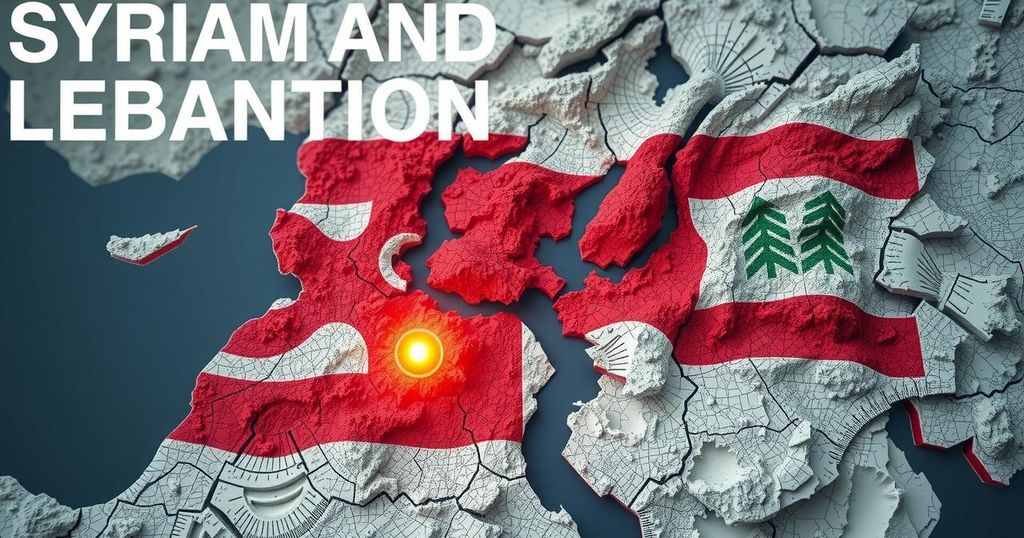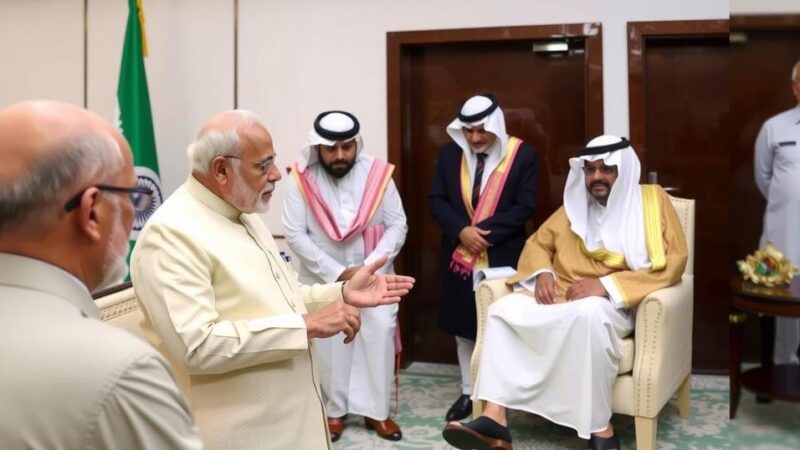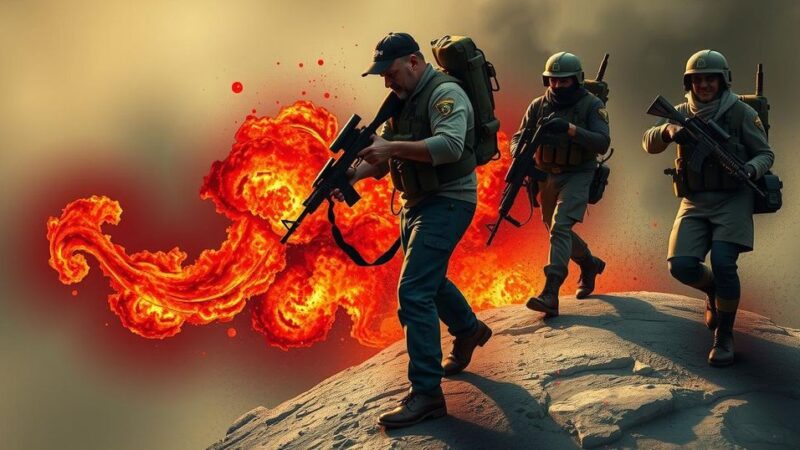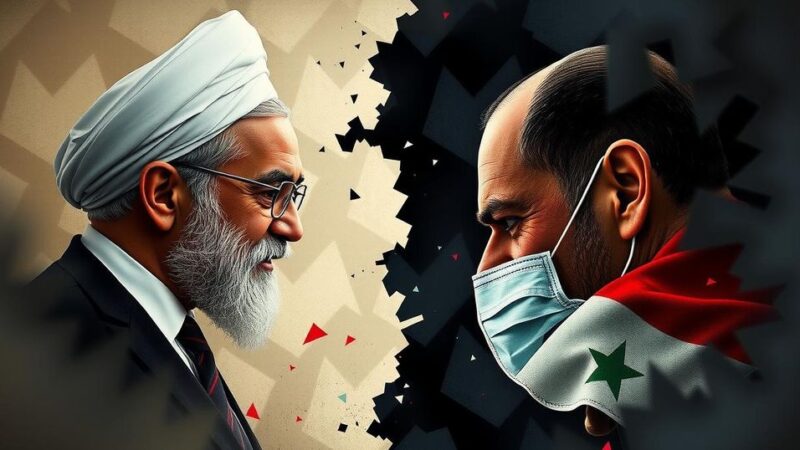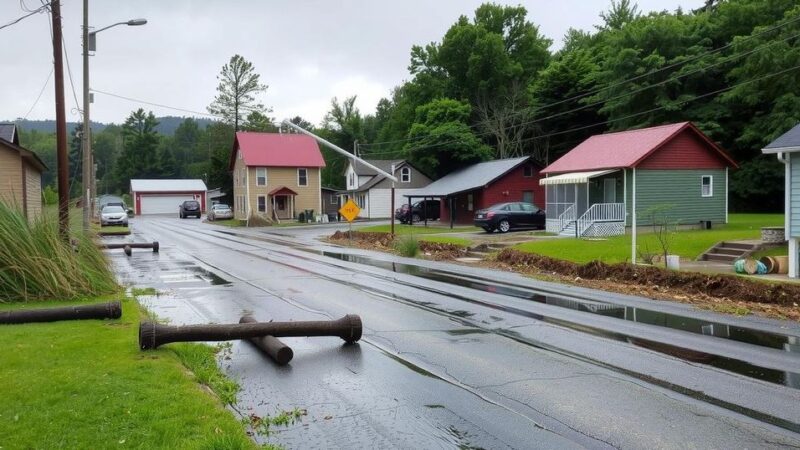The recent weakening of the Assad regime has invigorated the Sunni community in Lebanon, leading to protests demanding amnesty for incarcerated Sunnis. The political landscape is tense, as factions vie for influence amidst Hezbollah’s declining power. The forthcoming presidential election further complicates these dynamics, posing challenges for national unity while reflecting the ongoing sectarian conflicts in Lebanon.
The recent upheaval within Lebanon’s Sunni community, following the Assad regime’s decline in Syria, marks a significant shift in regional dynamics. Celebrations in Lebanon’s Sunni areas, such as Tripoli and Sidon, soon transitioned into calls for the release of Sunni prisoners. The Jamaah Islamiya, alongside other Islamist factions, is pushing for amnesty for imprisoned Islamists, spurred by events in Syria and a desire to reassert Sunni influence over Hezbollah, which is perceived to be weakened.
Sheikh Ahmad Shemali led protests demanding immediate amnesty in front of Roumieh prison, marking a newfound assertiveness among Sunnis. However, the prospects for amnesty are complicated by the political alignment of parliament Speaker Nabih Berri, who is aligned with Hezbollah and unlikely to support such measures. This situation has created tensions within Lebanon’s political landscape, particularly for the Shiite community grappling with Hezbollah’s diminished standing following military setbacks against Israel.
Inter-party negotiations are increasingly crucial, as discussions surrounding the forthcoming presidential election intensify. The Lebanese Armed Forces commander, Gen. Joseph Aoun, supported by U.S. interests, emerged as a potential presidential candidate. His recent meeting with Hezbollah’s Wafiq Safa underscored the tensions surrounding military authority and ceasefire agreements in southern Lebanon, indicating a precarious balance of power.
The fragmented Christian community is also in search of a consensus candidate, with accusations of collaboration against Jibran Bassil of the Free Patriotic Movement. With prominent leaders such as Samir Geagea and Samy Gemayel in opposition, the ability to unify is crucial. In light of the Sunni awakening in Lebanon and the reinforcement of a Sunni regime in Syria, the country faces potential instability, a reality that echoes the historical context of conflict in the region.
Nevertheless, remarks from Ahmad al Sharaa, the Syrian regime representative, express non-interference in Lebanese affairs, indicating a temporary pause in cross-border tensions. This demonstrates an opportunistic approach of the new Syrian leadership focused on internal consolidation, which may serve to mitigate immediate threats to Lebanon, despite underlying tensions living on.
Ultimately, Lebanon teeters on the edge of a significant political evolution driven by grassroots activism within the Sunni community and its implications on broader regional stability.
The dynamics of power in Lebanon have historically been influenced by external geopolitical shifts, particularly in neighboring Syria. The fall of President Bashar Assad’s regime has incited celebrations among Lebanon’s Sunni population, contrasting with the weakened state of Hezbollah and the Shiite community. The internal desire for political leverage and representation, alongside the struggle for Sunni jihadist prisoners’ rights, has catalyzed a renewed Sunni political movement. Lebanon’s multifaceted political environment—characterized by sectarian divisions and historical rivalries—necessitates a careful analysis of evolving alliances and the impact of Syrian politics. The recent call for amnesty by Sunni leaders denotes a new phase in Lebanese sectarian politics, possibly altering the fabric of power within the country.
In summary, the shifting political landscape in Lebanon, catalyzed by changes in Syria and the awakening of the Sunni community, brings to light the complex interplay of power, sectarian identities, and regional dynamics. While calls for amnesty reflect a burgeoning assertiveness among Sunnis, the complexities of Lebanese politics may hinder significant changes. The upcoming presidential election poses both opportunities and obstacles for various factions, including Hezbollah. The situation remains precarious, with the potential for instability as Lebanon navigates its path forward amidst a changing regional landscape.
Original Source: aurora-israel.co.il

